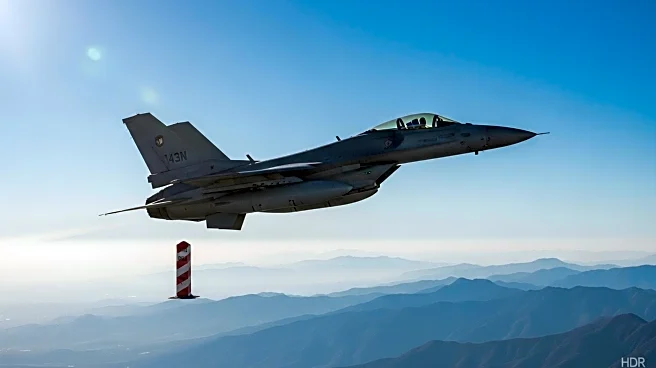What's Happening?
The North American Aerospace Defense Command (NORAD) recently intercepted Russian military aircraft that entered the Alaska Air Defense Identification Zone (ADIZ). The incident involved two Russian Tupolev Tu-95 bombers and two Sukhoi Su-35 fighters, which were tracked by NORAD's F-16 Fighting Falcons and other support aircraft. The Russian planes remained in international airspace and did not pose a direct threat, according to NORAD. This event is part of a series of similar incidents, with Russian aircraft frequently entering the ADIZ, prompting NORAD to maintain a vigilant presence in the region.
Why It's Important?
The interception of Russian aircraft by NORAD highlights ongoing military tensions between NATO and Russia. Such incidents underscore the strategic importance of the Arctic region and the need for constant vigilance by U.S. and allied forces. The regularity of these encounters raises concerns about potential miscalculations that could escalate into broader conflicts. For the U.S., maintaining airspace security is crucial for national defense, and these operations demonstrate the readiness and capability of NORAD to respond to potential threats.
What's Next?
As tensions between NATO and Russia persist, further incursions into the ADIZ are likely. NORAD will continue to monitor and intercept any unauthorized aircraft entering the zone. The U.S. and its allies may also engage in diplomatic efforts to address these provocations and seek to prevent any escalation. Additionally, NATO members may discuss enhancing their collective defense measures to deter further Russian military activities near their airspace.










